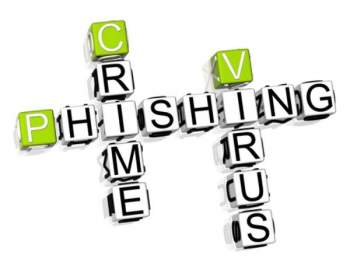
What You Need To Know About The Origins of Phishing

Phishing Defined
Phishing is facilitated as an online crime undertaken through the implementation of fraudulent correspondence by individual perpetrators, also known as ‘Phishers’. This means of disbursement with regard to the electronic communication, which is considered to be deceptive, fraudulent, and misrepresentative in nature, are unlawfully dispersed throughout the Internet to a multitude of recipients.
Phishing communications are typically enacted despite the absence of requests, invitations, or inquiries expressed by individual recipients. A typical Phishing scam will undertake efforts to unlawfully garner personal or financial information through fraudulent means, oftentimes facilitating misrepresentative dialogue in order to do so.
How Did ‘Phishing’ Get Its Name?
The earliest incarnation of Phishing is considered to have occurred within the early 1990s upon the release of America Online, which, at the time, was one of the only Internet providers to allow its users access to E-mail and interpersonal, electronic ‘chats’.
Individual facilitating Phishing scams would typically correspond with unsuspecting victims through fraudulently presenting themselves as system administrators requesting individual passwords and credit card information under the guise of security measures.
Due to the fact that the nature of Phishing relies heavily on probability with regard to the volume of Phishing solicitation disbursed, a comparison to the activity of ‘Fishing’ was made.
Hacking is the unlawful entry into the computer terminal, database, or digital record system belonging to another individual. The purposeful misspelling within the ‘Hacker’ community is not uncommon. As a result, ‘Fishing’ was replaced by the colloquialism ‘Phishing’.
Methods of Phishing
Phishing communications can emulate forms used by recognizable companies, as well as communications unlawfully sent from a hijacked e-mail account belonging to friend or acquaintance of the victim. A successful Phishing operation results in the attainment of personal and private information that can be used for illegal economic gain or exploitative measures.
Phishing Laws and Legality
Cyber Law is the legal specialty that focuses on legislation, decorum, legality, and ethics with regard to computer networks, the internet, electronic commerce, the online marketplace, and virtual commercial activity. Computer-based fraud, such as Phishing, is quite common within the digital age, which results in the illegal and unlawful seizing of personal data or the unwelcomed methods undertaken in order to perform the unlawful, electronic monitoring of another individual.
Phishing is considered to be a criminal activity within the realm of Cyber Law, which may retain supplemental charges that include the violation of privacy, trespassing, solicitation, or harassment.
How to Report a Phishing Offense?
The Federal Trade Commission (FTC) is a Federal institution mandated by the United States Government responsible for the maintenance, protection, and regulation of commercial activity undertaken within the commercial marketplace. The Federal Trade Commission can be contacted through their toll-free telephone number: (202) 326-2222. The reporting of any or all alleged Phishing offenses can be conducted in an anonymous fashion.
NEXT: Easy to Read Overview of Encryption





















